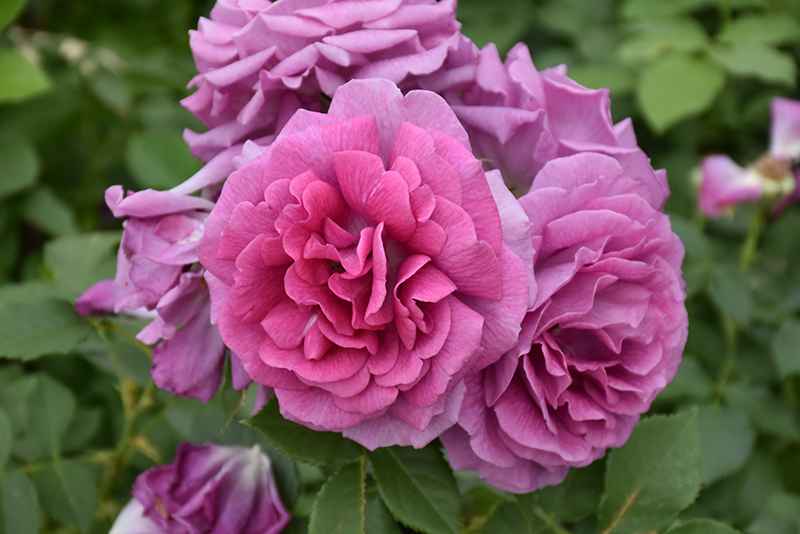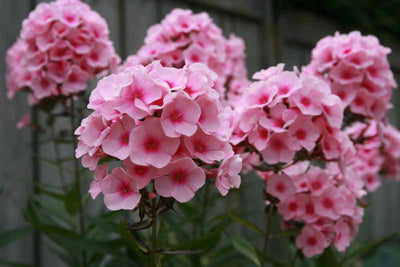Plant Library
Height: 3 feet
Spread: 3 feet
Sunlight:
![]()
Hardiness Zone: 6a
Group/Class: Flordibunda
Description:
This stunning variety features a tidy and neat rounded habit flushed with clusters of full looking blooms; lavender-pink flowers are accented by glossy, deep green foliage; moderate sweet and spicy fragrance; strong resistance to disease and color fading
Ornamental Features
Sweet Madame Blue Rose is bathed in stunning lightly-scented fully double lavender flowers with fuchsia overtones along the branches from late spring to mid fall. The flowers are excellent for cutting. It has dark green deciduous foliage. The glossy oval compound leaves do not develop any appreciable fall color.
Landscape Attributes
Sweet Madame Blue Rose is a multi-stemmed deciduous shrub with a more or less rounded form. Its average texture blends into the landscape, but can be balanced by one or two finer or coarser trees or shrubs for an effective composition.
This shrub will require occasional maintenance and upkeep, and is best pruned in late winter once the threat of extreme cold has passed. It is a good choice for attracting bees and butterflies to your yard. Gardeners should be aware of the following characteristic(s) that may warrant special consideration;
- Spiny
Sweet Madame Blue Rose is recommended for the following landscape applications;
- Mass Planting
- Hedges/Screening
- General Garden Use
Planting & Growing
Sweet Madame Blue Rose will grow to be about 3 feet tall at maturity, with a spread of 3 feet. It tends to fill out right to the ground and therefore doesn't necessarily require facer plants in front. It grows at a medium rate, and under ideal conditions can be expected to live for approximately 20 years.
This shrub should only be grown in full sunlight. It does best in average to evenly moist conditions, but will not tolerate standing water. This plant should not require much in the way of fertilizing once established, although it may appreciate a shot of general-purpose fertilizer from time to time early in the growing season. It is not particular as to soil type or pH. It is somewhat tolerant of urban pollution. This particular variety is an interspecific hybrid.






